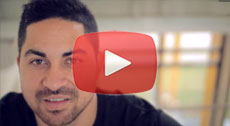Adult Congenital Heart Disease (ACHD)
Congenital heart disease/defect is an abnormality in the heart structure from birth.
The Adult Congenital Heart Disease (ACHD) Service is a Queensland state-wide service which aims to specifically improve the care, treatment and management of adults with congenital heart disease.
Our services
We provide ongoing care and management for adults as they transition from paediatric services and as needed throughout their life. Our service supports you and your family through your planned and coordinated transfer from paediatric cardiac services to adult congenital cardiac service. Our service connects you to various specialist services at the hospital to provide the best possible care throughout your life. We provide
- specialist outpatient follow-up of adults with congenital heart disease
- transition from paediatric cardiac clinics to adult congenital heart clinics
- inpatient services as required
- advice and education to practitioners dealing with ACHD patients
- liaison service with specialist services for the varied issues that may arise.
Transitioning from children to adult healthcare
The transition from paediatric to adult health services can be challenging, but we are here to provide support and guidance to patients and their parents throughout this process. The transition normally occurs between 16-20 years of age. Our goal is to help young people develop greater independence and responsibility for their healthcare while offering support to patients and their families in planning, preparing, and transitioning to an adult health service.
We provide dedicated information for adolescents, parents, and families, to facilitate a smooth transition. To access these resources, please find further information below:
If you’d like more information, please speak to your treating clinician, who will be happy to answer your questions.
Finding a GP
It is recommended that everyone have a local doctor, also known as a general practitioner (GP), with whom they feel comfortable. Your GP is typically the first healthcare professional you should contact if you begin to feel unwell, as they are more accessible than specialists and can manage a wide range of health issues.
Having trust and feeling at ease with your GP is crucial to enable you to discuss your health concerns openly. A GP should assess your physical and mental well-being and collaborate with other healthcare professionals by referring you to them when necessary. This approach is essential to ensure comprehensive care.
For parents/caregivers
Parents and caregivers are crucial in aiding young people to transition to adult healthcare. Although it can be daunting to support your child in gaining independence, particularly if they have multiple care teams, be assured that the transition will be phased and will occur over a timeframe tailored to their needs and requirements. As a general guideline, we aim to introduce young patients to new adult specialists by the time they are 17 years old. This will ensure ample opportunities to discuss ongoing healthcare needs and expectations. The level of support provided will be determined by their preferences.
How to access this service
To access this service, your GP or medical practitioner will need to send a referral letter to the hospital.
Refer your patient
Refer to an outpatient clinic:
Cardiology referral guideline
Referral hotline:
1300 364 938
After your hospital appointment
Your doctor may advise that you require surgery. If this is the case you will be placed on a surgical waiting list and may need to attend the Pre-admission Clinic before your surgery.
What to bring
Each time you visit us
- Your Medicare card
- Private health insurance card (if you have one)
- Health Care Card and/or concession card (if you have one)
- Current medications (prescription, over the counter and herbal medicine)
- Relevant x-rays, scans or any other test results or reports
- Glasses, hearing aids and mobility aids
- your sleep equipment – machine and accessories (CPAP or bilevel)
For an outpatient or clinic appointment
- Your appointment letter
- Any special items listed on your letter
- WorkCover claim number (if relevant)
- Snacks, a drink or money to buy refreshments
- Something to read or do while you wait
For a day procedure
- An adult carer to support you and take you home
- Copy of Advanced Healthcare Directive or Enduring Power of Attorney (if you have one)
- A jacket or cardigan in case you get cold
Staying overnight or longer
- A dressing gown or cardigan, sleepwear or comfortable day clothes
- Slippers and shoes (low heel, closed-in, non-slip, adjustable and firm fitting around the foot)
- Your toiletries and personal items
- Copy of Advanced Healthcare Directive or Enduring Power of Attorney if you have one
- Something to read or do during your stay
- Medical devices required for your care (e.g. CPAP machine)
- Do not bring large amounts of cash or valuables such as jewellery, watches or other items of value to you
- Medications that are due whilst admitted for your sleep study
Clinics
Contact us
Heart and Lung Clinic
Location: Ground floor, Main Building, The Prince Charles Hopsital
Phone:
(07) 3139 4207 (Appointment enquiries)
(07) 3139 6299 (Administrative officer)
(07) 3139 5581 (Clinical Nurse Consultant)
Adult Congenital Heart Disease Clinic
Location: Heart and Lung , Ground floor, Main Building, The Prince Charles Hospital
Phone: (07) 3139 5581
Marfans and Aneurysms Clinic
Location: Heart and Lung , Ground floor, Main Building, The Prince Charles Hospital
Phone: (07) 3139 7207
Need help outside hours?
To contact the ACHD service, call (07) 3139 5581 and leave a voice mail message with your name and phone number
For non-urgent medical issues call 13 HEALTH (13 43 25 84) or visit your GP
In an emergency call 000.
Refer a patient
To refer a patient an outpatient clinic, view the Cardiology referral guideline.
Referral hotline: 1300 364 938

